
Barranquilla: The Golden Gate of Colombia
Barranquilla, often called the Golden Gate of Colombia, is a vibrant city located on the Caribbean coast. Known for its rich cultural heritage and lively atmosphere, Barranquilla is most famous for its colorful Carnival, one of the biggest and most renowned in the world. During this festival, the streets come alive with music, dance, and parades, offering a glimpse into the heart of Colombian culture. Beyond the Carnival, Barranquilla boasts a variety of attractions. Visit the historic downtown area to see beautiful colonial architecture and explore the Museo del Caribe to learn about the region's history and traditions. The city is also home to beautiful parks, such as the Parque Cultural del Caribe, where you can relax and enjoy the tropical surroundings. Food lovers will delight in Barranquilla's culinary scene, which blends Caribbean and Colombian flavors. Savor local dishes like arepas, empanadas, and fresh seafood. The city's nightlife is equally exciting, with numerous bars and clubs where you can dance the night away to the rhythm of cumbia and vallenato music. With its warm climate, friendly locals, and a variety of attractions, Barranquilla is a must-visit destination for anyone looking to experience the essence of Colombia.
Local tips in Barranquilla
- Plan your visit around the Carnival season, typically in February or March, for the most festive experience.
- Wear comfortable shoes when exploring the historic downtown area as the streets are best seen on foot.
- Try local dishes at small, family-owned restaurants for an authentic taste of Barranquilla's cuisine.
- Stay hydrated and use sunscreen, as the tropical climate can be very hot and sunny.
- Learn a few basic Spanish phrases to enhance your interaction with the friendly locals.
Neighbourhoods in Barranquilla
Barranquilla: The Golden Gate of Colombia
Barranquilla, often called the Golden Gate of Colombia, is a vibrant city located on the Caribbean coast. Known for its rich cultural heritage and lively atmosphere, Barranquilla is most famous for its colorful Carnival, one of the biggest and most renowned in the world. During this festival, the streets come alive with music, dance, and parades, offering a glimpse into the heart of Colombian culture. Beyond the Carnival, Barranquilla boasts a variety of attractions. Visit the historic downtown area to see beautiful colonial architecture and explore the Museo del Caribe to learn about the region's history and traditions. The city is also home to beautiful parks, such as the Parque Cultural del Caribe, where you can relax and enjoy the tropical surroundings. Food lovers will delight in Barranquilla's culinary scene, which blends Caribbean and Colombian flavors. Savor local dishes like arepas, empanadas, and fresh seafood. The city's nightlife is equally exciting, with numerous bars and clubs where you can dance the night away to the rhythm of cumbia and vallenato music. With its warm climate, friendly locals, and a variety of attractions, Barranquilla is a must-visit destination for anyone looking to experience the essence of Colombia.
When is the best time to go to Barranquilla?
Iconic landmarks you can’t miss
Gran Malecón
Experience the vibrant culture and stunning views at Gran Malecón, Barranquilla's premier park and cultural hub along the Magdalena River.
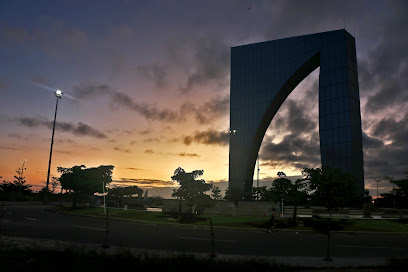
Monumento Ventana al Mundo
Explore the vibrant Monumento Ventana al Mundo in Barranquilla, a stunning blend of art and nature showcasing the city's rich culture.
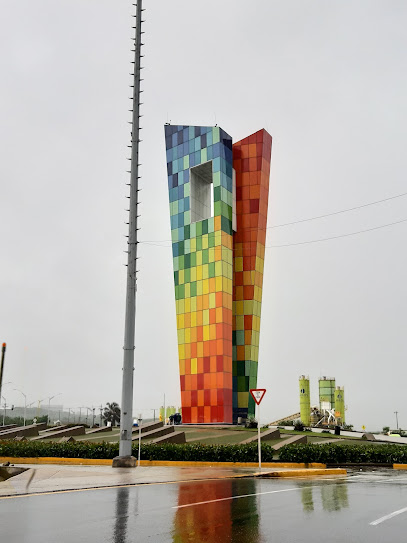
Zoológico de Barranquilla
Experience the captivating world of wildlife at Zoológico de Barranquilla, a premier zoo showcasing diverse species and promoting conservation.
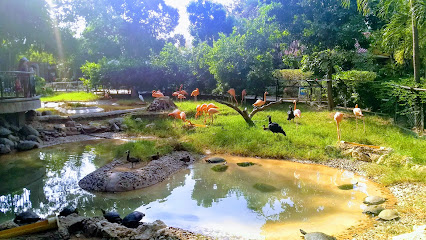
Castle Salgar
Discover the enchanting Castle Salgar in Puerto Colombia, a stunning blend of history and architecture set against the backdrop of the Caribbean Sea.
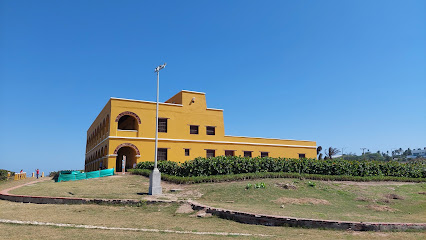
Plaza de la Paz - John Paul II
Discover the serene beauty of Plaza de la Paz - John Paul II in Barranquilla, a perfect blend of nature, art, and culture.
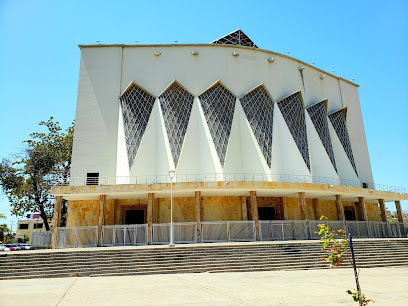
LA TROJA- ´Patrimonio musical y cultural de barranquilla.
Discover the vibrant nightlife and rich musical heritage of Barranquilla at La Troja, a must-visit cultural gem in Colombia.
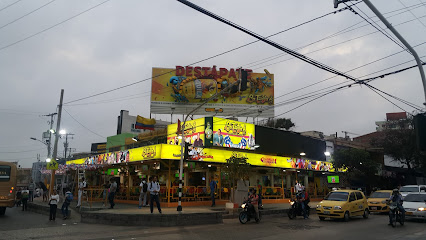
Paseo de Bolívar
Explore the cultural heart of Barranquilla at Paseo de Bolívar, a vibrant monument filled with history, art, and community spirit.
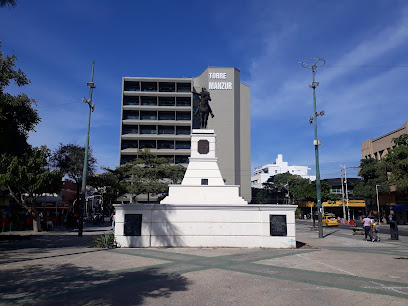
Dann Carlton Hotel Barranquilla
Discover the elegance and comfort of the Dann Carlton Hotel Barranquilla, your perfect retreat in the heart of the city.
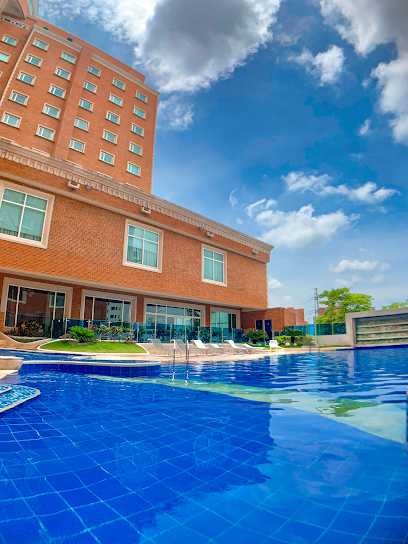
Catedral Metropolitana María Reina de Barranquilla
Discover the breathtaking Catedral Metropolitana María Reina de Barranquilla, a stunning blend of faith and architectural beauty in Colombia's vibrant historic center.
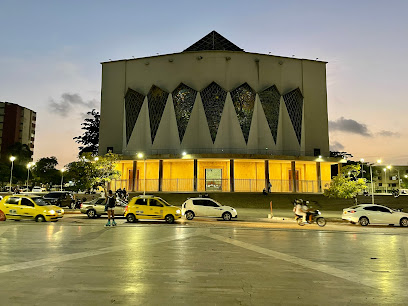
Plaza de San Nicolás
Explore Plaza de San Nicolás: A vibrant plaza in Barranquilla, Colombia, rich in history, culture, and community spirit, perfect for tourists and locals alike.
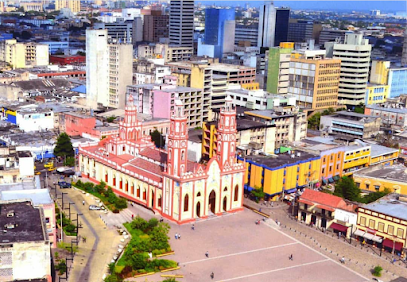
Varadero
Experience the vibrant flavors of the Caribbean at Varadero, Barranquilla's premier destination for authentic Colombian and Cuban cuisine.
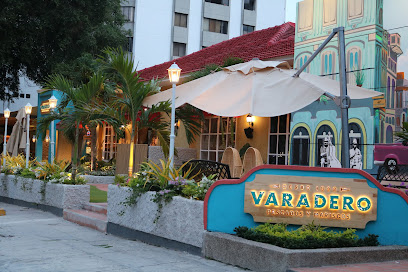
Gran Malecón - Sector Gastronómico
Discover the vibrant culinary scene along the Gran Malecón, Barranquilla's premier waterfront destination for delightful dining and scenic views.
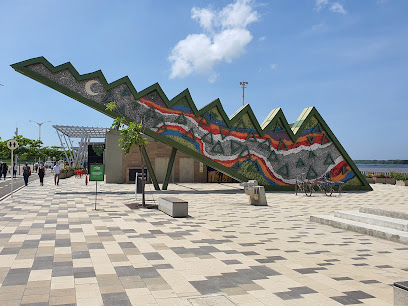
Parque Washington
Explore Parque Washington, a lush urban park in Barranquilla, offering tranquility, vibrant greenery, and a perfect escape for relaxation and recreation.
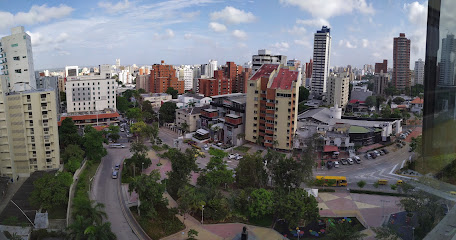
Malecón Tourist León Caridi
Experience the lively Malecón Tourist León Caridi, a riverside gem in Barranquilla offering stunning views, cultural vibrancy, and a taste of Colombian life.
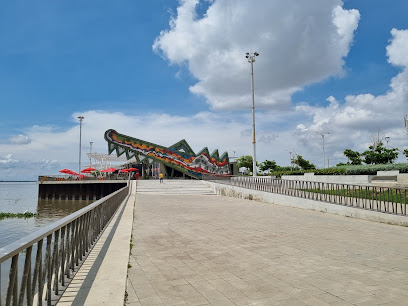
Carnival Museum
Discover the heart of Barranquilla's Carnival at the Carnival Museum, where culture, history, and art come alive in vibrant displays.
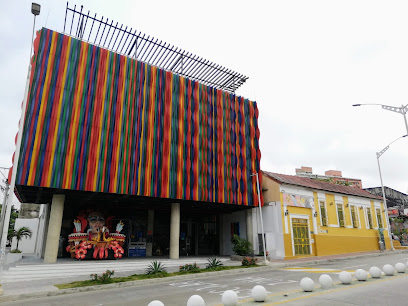
Unmissable attractions to see
Roberto Melendez Metropolitan Stadium
Experience the vibrant atmosphere of Roberto Melendez Metropolitan Stadium, the heart of sports culture in Barranquilla, Colombia, where passion and excitement collide.
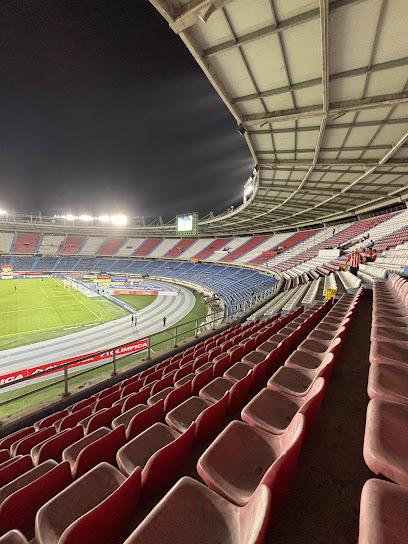
Gran Malecón
Explore Gran Malecón in Barranquilla for breathtaking river views, vibrant culture, and a delightful outdoor experience that captures the essence of Colombia.
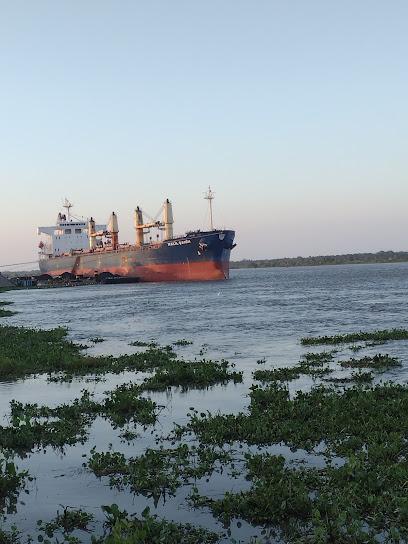
Zoológico de Barranquilla
Discover the rich biodiversity at Zoológico de Barranquilla, a premier zoo experience in Colombia with engaging exhibits and family-friendly activities.
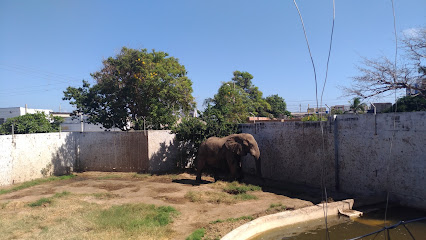
Castle Salgar
Explore Castle Salgar in Puerto Colombia for breathtaking views, rich history, and a serene escape into Colombia's coastal beauty.
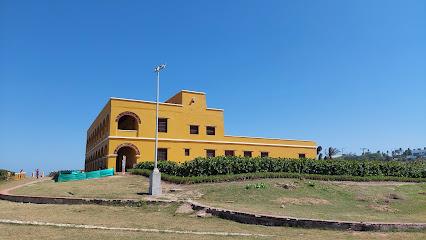
Plaza de la Paz - John Paul II
Discover the serene beauty of Plaza de la Paz - John Paul II in Barranquilla, where art, nature, and culture unite in a vibrant urban oasis.
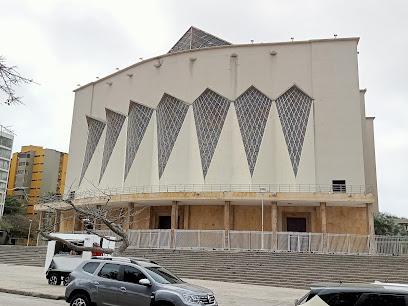
LA TROJA- ´Patrimonio musical y cultural de barranquilla.
Experience Barranquilla's vibrant culture at La Troja, a musical haven for nightlife lovers and a celebration of Colombia's rich musical heritage.
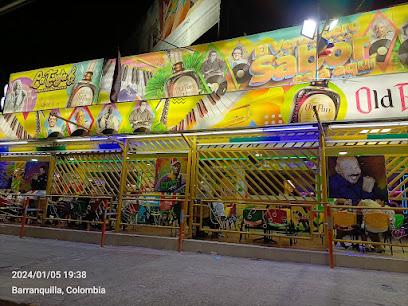
Muvdi Park
Discover the natural beauty and vibrant atmosphere of Muvdi Park, a premier destination for relaxation and recreation in Soledad, Atlántico.
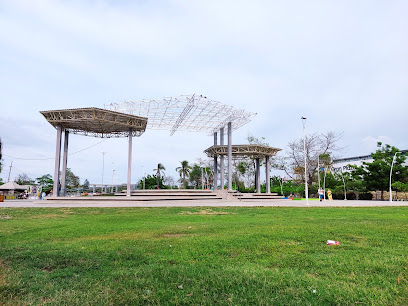
Venezuela Park
Experience the tranquil beauty and cultural vibrancy of Venezuela Park in Barranquilla, a perfect escape for relaxation and recreation.
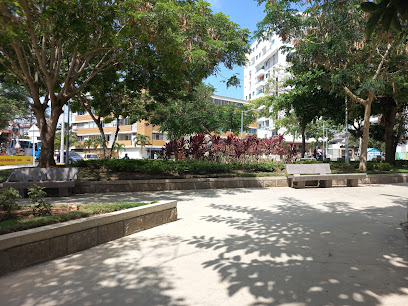
Plaza de San Nicolás
Experience the vibrant culture of Barranquilla at Plaza de San Nicolás, a historic plaza brimming with local flavors, events, and rich heritage.
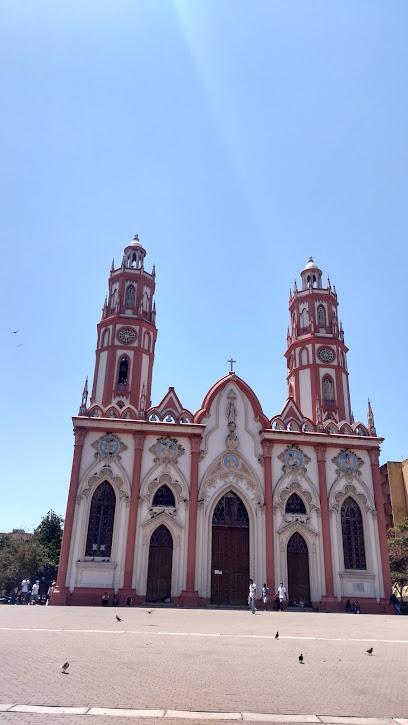
Romelio Martínez Stadium
Discover the vibrant spirit of Barranquilla at Romelio Martínez Stadium, where sports and culture collide in an exhilarating atmosphere.
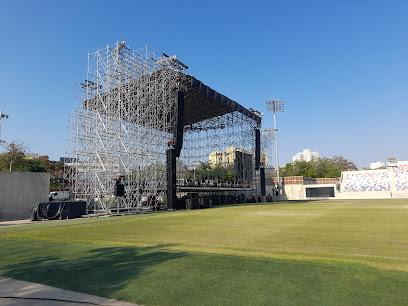
Burbujas de acuarela
Explore the vibrant world of creativity and nature at Burbujas de Acuarela, a unique kindergarten and tourist attraction in Barranquilla.
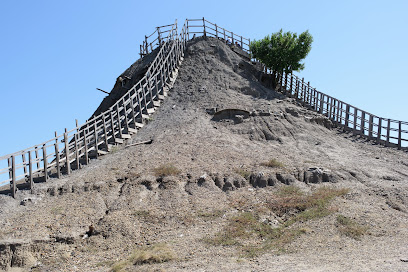
Parque Washington
Discover the natural beauty and vibrant culture of Barranquilla at Parque Washington, a perfect urban escape for nature lovers and tourists.
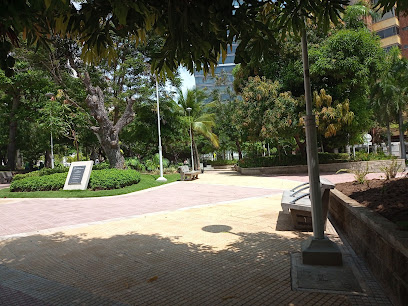
Arena Deportiva Elías Chegwin
Discover the excitement of Arena Deportiva Elías Chegwin, a cultural and sporting hub in Barranquilla, Colombia, filled with thrilling events and rich experiences.
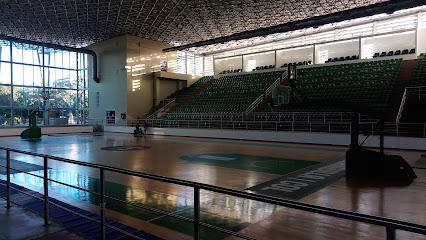
Mirador Lago Del Cisne Park
Experience the tranquil beauty of Mirador Lago Del Cisne Park in Puerto Colombia, a perfect escape for nature lovers and culture seekers alike.
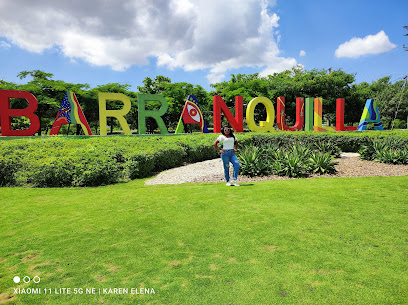
Mirador De Los Nogales
Experience the serene beauty and breathtaking views at Mirador De Los Nogales, the perfect park escape in Barranquilla, Colombia.
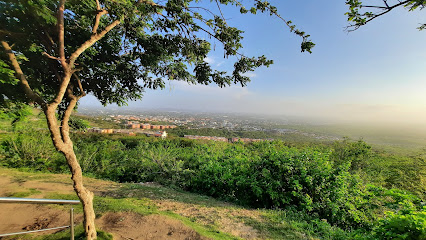
Essential places to dine
Narcobollo Barranquilla
Experience authentic Colombian flavors at Narcobollo Barranquilla, where delicious Caribbean dishes meet vibrant local culture.
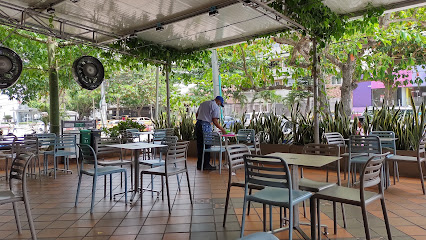
Rodizio carne e Vinho barranquilla
Experience the best of Brazilian barbecue at Rodizio Carne e Vinho in Barranquilla – where flavor meets tradition.
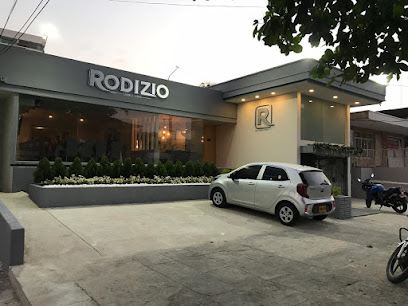
Varadero
Discover Varadero: A culinary haven in Barranquilla serving authentic Caribbean and Colombian flavors in a vibrant setting.
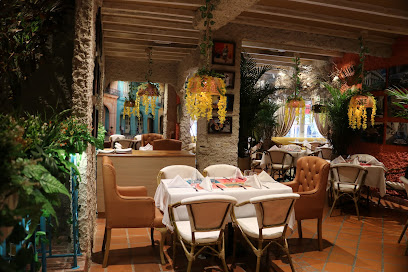
Restaurante La Cueva
Experience the rich flavors of Barranquilla at Restaurante La Cueva – where every dish tells a story.
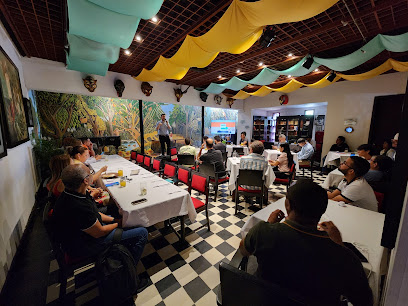
Restaurante Cuzco
Experience the vibrant flavors of Peru at Restaurante Cuzco in Barranquilla - where culinary art meets tradition.
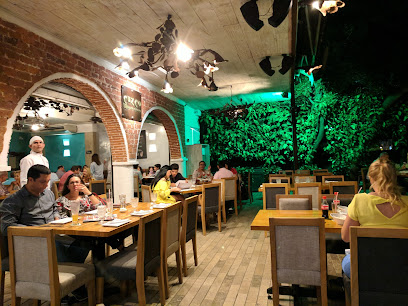
Pepe Anca
Savor authentic Colombian grilled cuisine at Pepe Anca in Barranquilla – where every bite tells a story.
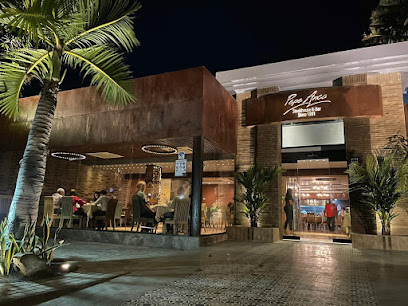
FiorDi
Discover FiorDi in Barranquilla – where Italian flavors meet local charm in a vibrant setting.
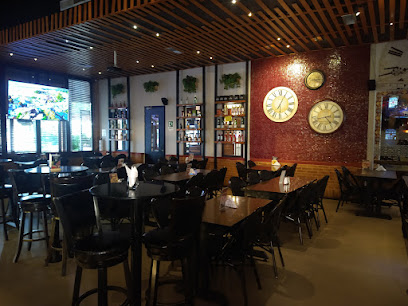
Arabe Gourmet
Experience authentic Middle Eastern cuisine at Arabe Gourmet in Barranquilla - where flavor meets tradition!
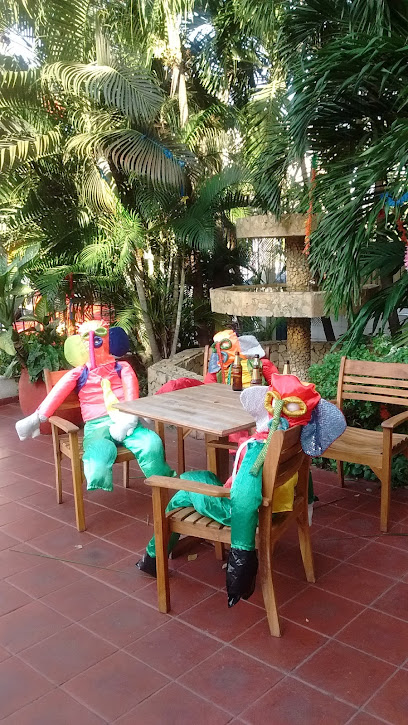
Palenque Restaurante
Discover authentic Colombian cuisine at Palenque Restaurante in Barranquilla – where vibrant flavors meet rich cultural traditions.
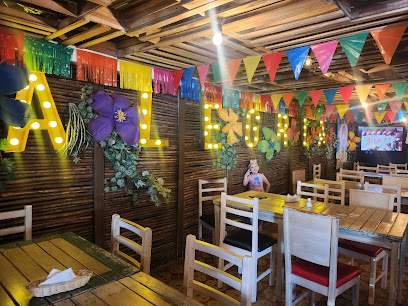
Terraza Árabe
Savor the rich flavors of Lebanon at Terraza Árabe in Barranquilla – a culinary oasis offering authentic dishes in a vibrant setting.
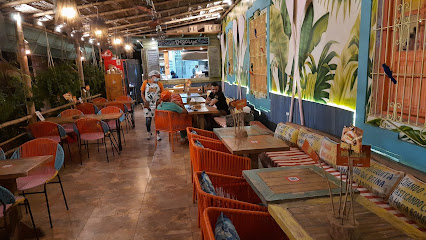
Storia D'Amore Barranquilla
Experience authentic Italian cuisine at Storia D'Amore in Barranquilla – where every dish tells a story.
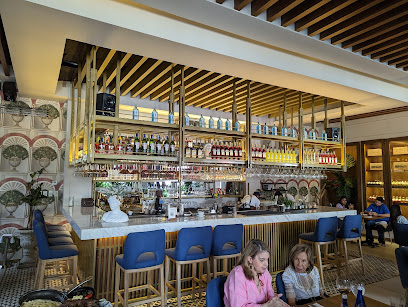
Restaurante Palo de Mango
Discover authentic Colombian flavors at Restaurante Palo de Mango in Barranquilla—where every dish tells a story.
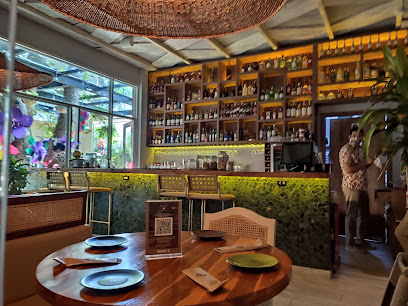
Miura Steak House
Discover culinary excellence at Miura Steak House: where premium steaks meet fresh seafood in Barranquilla's vibrant dining scene.
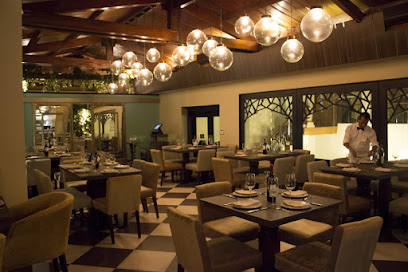
La Girolata
Experience authentic Italian cuisine at La Girolata in Barranquilla's historic district - where flavor meets tradition.
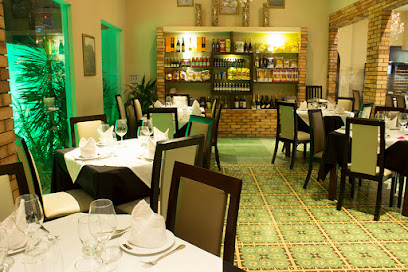
Mistura Barranquilla
Experience the vibrant flavors of Colombia at Mistura Barranquilla – where culinary artistry meets warm hospitality.
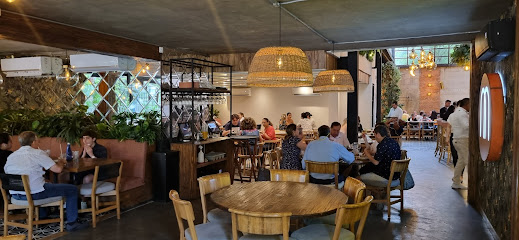
Markets, malls and hidden boutiques
Viva Shopping Mall
Explore the vibrant Viva Shopping Mall in Barranquilla for an unforgettable shopping experience filled with diverse stores, delicious food, and family-friendly fun.
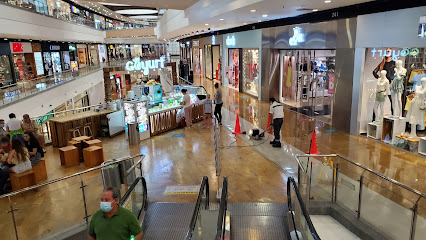
Centro Comercial Buenavista
Discover the vibrant shopping scene at Centro Comercial Buenavista in Barranquilla, featuring diverse brands, delicious dining, and exciting entertainment options.
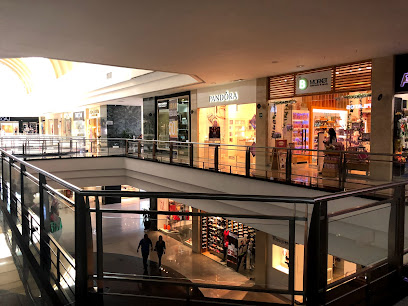
Portal del Prado Centro Comercial
Explore the vibrant shopping experience at Portal del Prado Centro Comercial in Barranquilla, where shopping, dining, and entertainment come together.
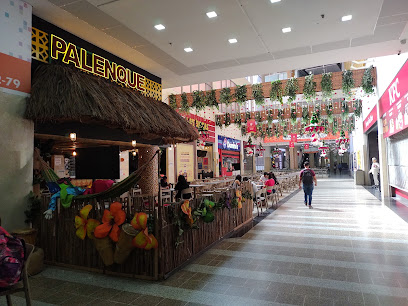
UNICO OUTLET - Mall
Discover unbeatable deals and a delightful dining experience at UNICO Outlet, the premier shopping destination in Barranquilla.
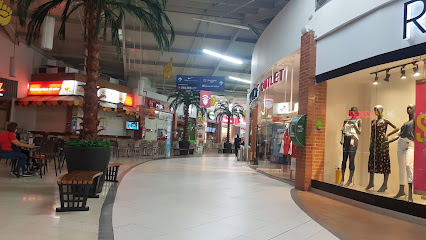
Mallplaza Buenavista Centro Comercial
Discover Barranquilla's premier shopping destination at Mallplaza Buenavista, where shopping, dining, and entertainment come together in a vibrant atmosphere.
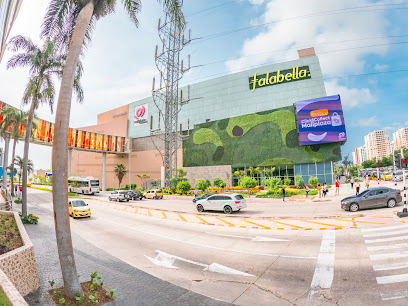
Centro Comercial Panorama
Explore the vibrant Centro Comercial Panorama in Barranquilla, a shopping haven offering diverse stores, delicious dining, and engaging entertainment.
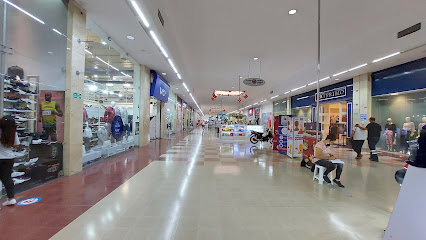
Alkosto Barranquilla
Discover the ultimate shopping experience at Alkosto Barranquilla, where quality meets affordability in a vibrant atmosphere.
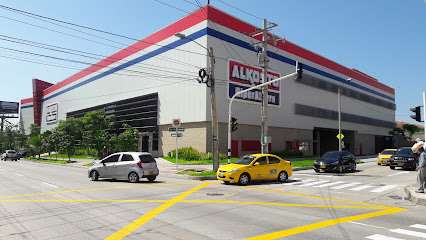
Centro Comercial Plaza del Parque
Explore the heart of Barranquilla at Centro Comercial Plaza del Parque, a vibrant shopping mall with a variety of shops, dining, and entertainment options.
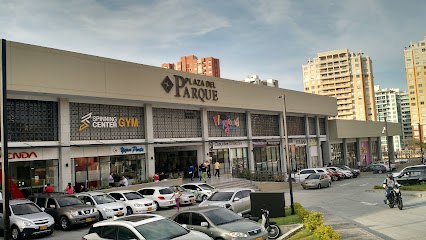
Centro Comercial Americano
Explore Centro Comercial Americano in Barranquilla for a unique shopping experience featuring diverse brands and delightful dining options.
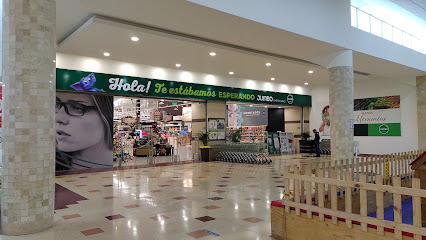
Centro Comercial Villa Country
Experience the ultimate shopping and dining destination at Centro Comercial Villa Country in Barranquilla, where vibrant culture meets modern retail.
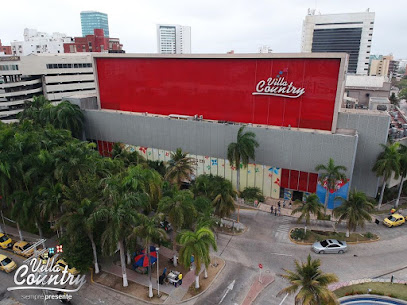
C.C Blue Gardens - Barranquilla
Explore the lively C.C Blue Gardens in Barranquilla for shopping, dining, and entertainment in a vibrant atmosphere.
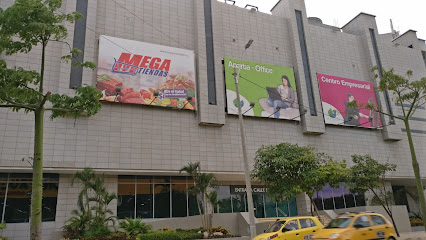
Centro Comercial Gran Boulevard
Experience the vibrant shopping, dining, and entertainment at Centro Comercial Gran Boulevard in Barranquilla, the ultimate shopping destination for tourists.
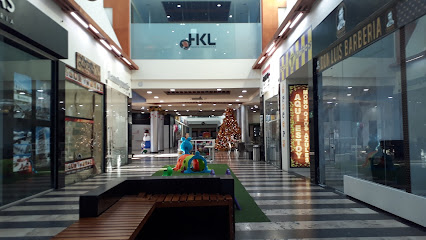
MIRAMAR Mall
Explore MIRAMAR Mall in Barranquilla for a vibrant shopping experience with diverse stores, delightful dining, and exciting entertainment options.
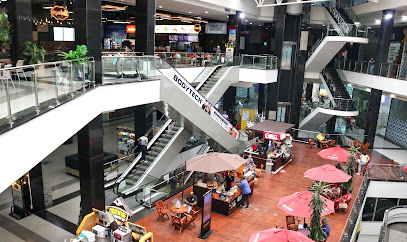
Bloom by Zayu
Explore Bloom by Zayu in Barranquilla for trendy women's and youth clothing that beautifully blends local culture with contemporary fashion.
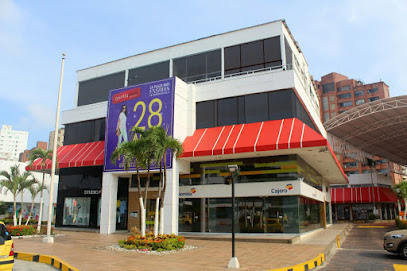
iPhone world Barranquilla
Discover the ultimate mobile experience at iPhone World Barranquilla, where top-notch devices and expert services await you.
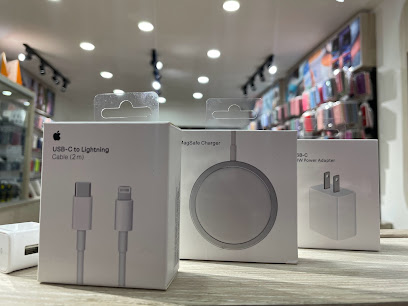
Essential bars & hidden hideouts
Johnny Maracas | Restaurante Bar, Karaoke
Dive into the lively spirit of Barranquilla at Johnny Maracas, where delicious grilled meals meet unforgettable karaoke nights.
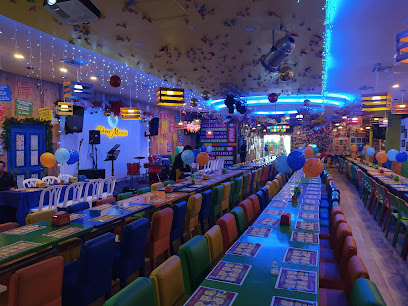
Trucupey Latin Disco
Dive into Barranquilla's vibrant nightlife at Trucupey Latin Disco, where the rhythm of Latin music and dance come alive in an unforgettable experience.
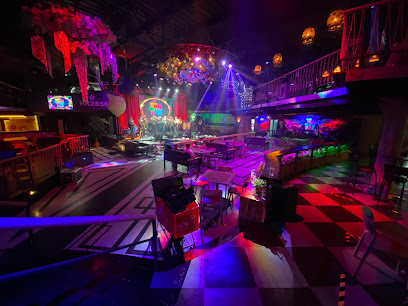
4°b Bar
Discover the lively atmosphere of 4°b Bar in Barranquilla, where vibrant nightlife meets affordable drinks and friendly faces.
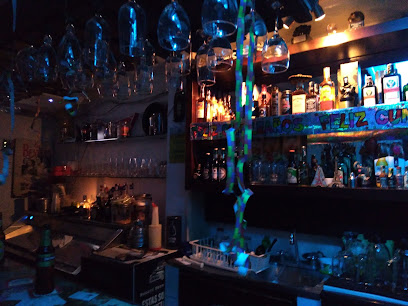
La Troja VIP
Experience the vibrant nightlife of Barranquilla at La Troja VIP, where local flavors meet international cocktails in a lively atmosphere.
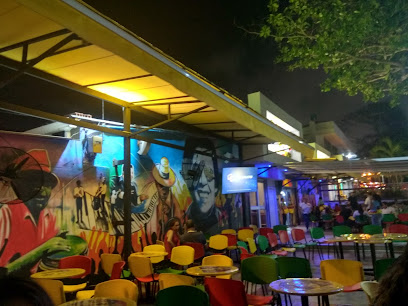
Coco Beach
Discover the vibrant atmosphere of Coco Beach, a premier bar in Barranquilla, where delicious cocktails and stunning views await you.
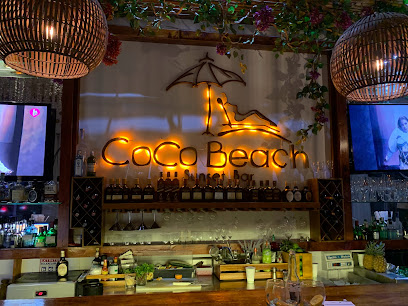
Lobo - Cocktail Bar
Experience the vibrant nightlife of Barranquilla at Lobo, a cocktail bar known for its creative drinks and lively atmosphere.
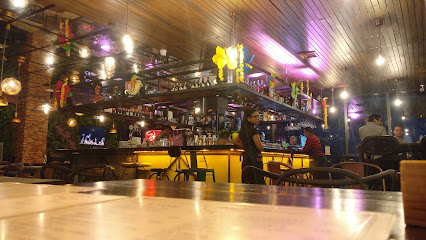
Coliseo Sport Bar 84
Experience the vibrant flavors of Colombia at Coliseo Sport Bar 84, the ultimate destination for grill lovers and sports enthusiasts in Barranquilla.
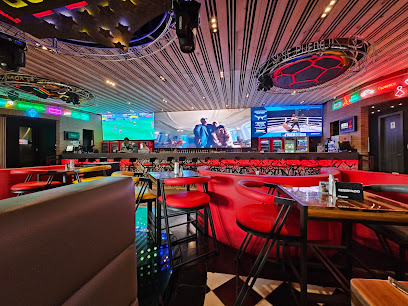
DRINKS AND DRINKS
Experience the vibrant nightlife of Barranquilla at Drinks and Drinks, where local flavors meet lively ambiance in the heart of the city.
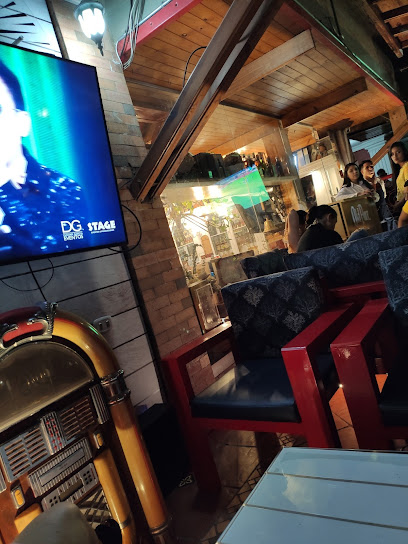
Embajada Beer
Experience Barranquilla's nightlife at Embajada Beer, a lively bar offering a diverse selection of local and international beers in a welcoming atmosphere.
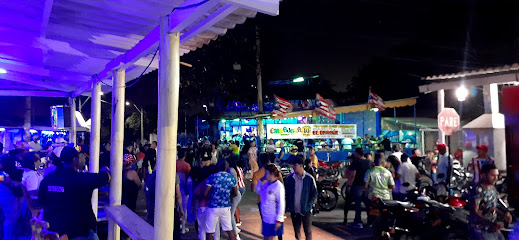
Coliseo Sport Bar
Discover the energy of Barranquilla at Coliseo Sport Bar, where sports, drinks, and social vibes collide for an unforgettable experience.
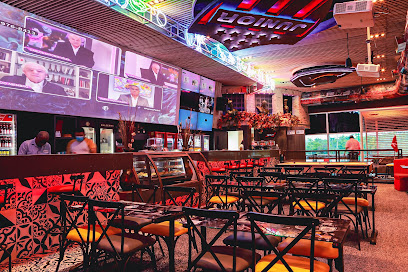
Kava Rooftop & Gastro-Bar
Experience breathtaking views and exquisite flavors at Kava Rooftop & Gastro-Bar, Barranquilla's premier rooftop destination for food and drinks.
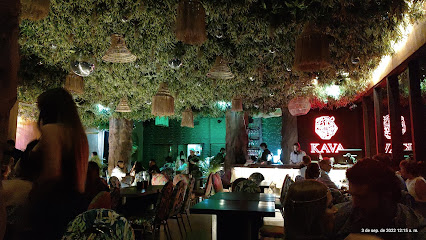
Garden Baq
Experience the vibrant nightlife of Barranquilla at Garden Baq, where great cocktails and a lively atmosphere await.
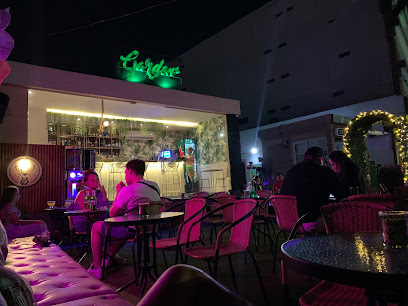
Alzheimer Drinks
Experience the vibrant nightlife of Barranquilla at Alzheimer Drinks, a bar where local culture meets refreshing cocktails in a lively atmosphere.
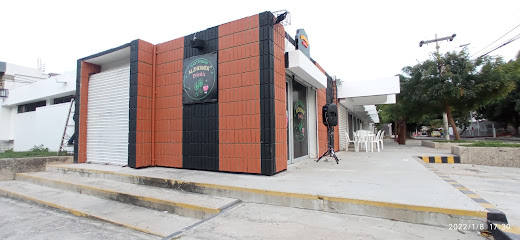
Motivos Bar
Discover the vibrant nightlife at Motivos Bar in Barranquilla – a must-visit for cocktails, music, and unforgettable experiences.
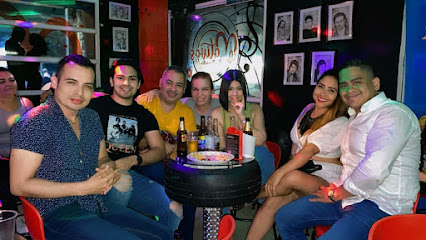
Sunset bar
Discover the vibrant atmosphere of Sunset Bar in Barranquilla, a perfect spot to relax, sip cocktails, and enjoy stunning sunsets.
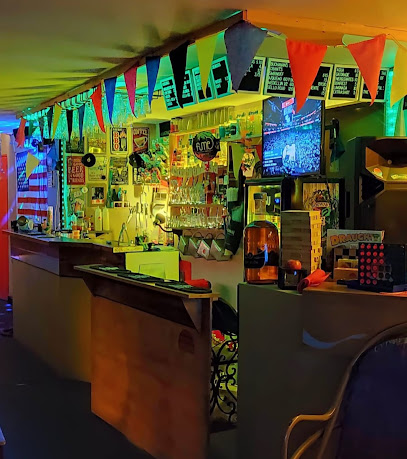
Local Phrases
-
- HelloHola
[oh-lah] - GoodbyeAdiós
[ah-dee-ohs] - YesSí
[see] - NoNo
[noh] - Please/You're welcomePor favor/De nada
[por fah-vohr/de nah-dah] - Thank youGracias
[grah-see-ahs] - Excuse me/SorryPerdón/Lo siento
[pehr-dohn/loh see-ehn-toh] - How are you?¿Cómo estás?
[koh-moh ehs-tahs] - Fine. And you?Bien. ¿Y tú?
[byen. ee too] - Do you speak English?¿Hablas inglés?
[ah-blahs een-glehs] - I don't understandNo entiendo
[noh ehn-tee-ehn-doh]
- HelloHola
-
- I'd like to see the menu, pleaseMe gustaría ver el menú, por favor
[meh goo-stah-ree-ah vehr ehl meh-noo, por fah-vohr] - I don't eat meatNo como carne
[noh koh-moh kahr-neh] - Cheers!¡Salud!
[sah-loohd] - I would like to pay, pleaseMe gustaría pagar, por favor
[meh goo-stah-ree-ah pah-gahr, por fah-vohr]
- I'd like to see the menu, pleaseMe gustaría ver el menú, por favor
-
- Help!¡Ayuda!
[ah-yoo-dah] - Go away!¡Vete!
[veh-teh] - Call the Police!¡Llama a la Policía!
[yah-mah ah lah poh-lee-see-ah] - Call a doctor!¡Llama a un médico!
[yah-mah ah oon meh-dee-koh] - I'm lostEstoy perdido
[ehs-toy pehr-dee-doh] - I'm illEstoy enfermo
[ehs-toy ehn-fehr-moh]
- Help!¡Ayuda!
-
- I'd like to buy...Me gustaría comprar...
[meh goo-stah-ree-ah kohm-prahr] - I'm just lookingSolo estoy mirando
[soh-loh ehs-toy mee-rahn-doh] - How much is it?¿Cuánto cuesta?
[kwahn-toh kweh-stah] - That's too expensiveEso es demasiado caro
[eh-soh ehs deh-mah-see-ah-doh kah-roh] - Can you lower the price?¿Puede bajar el precio?
[pweh-deh bah-hahr ehl preh-see-oh]
- I'd like to buy...Me gustaría comprar...
-
- What time is it?¿Qué hora es?
[keh oh-rah ehs] - It's one o'clockEs la una
[ehs lah oo-nah] - Half past (10)Son las diez y media
[sohn lahs dyehs ee meh-dee-ah] - MorningMañana
[mah-nyah-nah] - AfternoonTarde
[tahr-deh] - EveningNoche
[noh-cheh] - YesterdayAyer
[ah-yehr] - TodayHoy
[oy] - TomorrowMañana
[mah-nyah-nah] - 1Uno
[oo-noh] - 2Dos
[dohs] - 3Tres
[trehs] - 4Cuatro
[kwah-troh] - 5Cinco
[seen-koh] - 6Seis
[seys] - 7Siete
[syeh-teh] - 8Ocho
[oh-choh] - 9Nueve
[nweh-veh] - 10Diez
[dyehs]
- What time is it?¿Qué hora es?
-
- Where's a/the...?¿Dónde está...?
[dohn-deh ehs-tah] - What's the address?¿Cuál es la dirección?
[kwahl ehs lah dee-rehk-syohn] - Can you show me (on the map)?¿Puedes mostrarme (en el mapa)?
[pweh-dehs mohs-trar-meh (ehn ehl mah-pah)] - When's the next (bus)?¿Cuándo es el próximo (autobús)?
[kwahn-doh ehs ehl proh-ksee-moh (ow-toh-boos)] - A ticket (to ....)Un boleto (para ....)
[oon boh-leh-toh (pah-rah)]
- Where's a/the...?¿Dónde está...?
History of Barranquilla
-
Barranquilla was officially founded on April 7, 1813, although its origins date back to the early 17th century. The city emerged as a small trading post and settlement for indigenous peoples and Spanish colonizers near the Magdalena River. Its strategic location eventually turned it into a crucial port and commercial hub.
-
During the early 19th century, Barranquilla played a minor role in Colombia's struggle for independence from Spanish rule. The city's port facilitated the movement of goods and people, indirectly supporting the revolutionary efforts. However, it wasn't until after independence that Barranquilla began to flourish.
-
The late 19th and early 20th centuries marked a period of rapid economic growth for Barranquilla. The construction of the Puerto Colombia pier in 1893 made it the main entry point for immigrants and goods entering the country. The city became known as Colombia's 'Golden Gate' and saw the establishment of various industries, including textiles, beverages, and construction materials.
-
Barranquilla's status as a major port attracted a diverse array of immigrants, including Arabs, Jews, Italians, and Germans, contributing to its rich cultural tapestry. This multicultural influence is evident in the city’s architecture, cuisine, and festivals, making Barranquilla a unique cultural melting pot.
-
The Barranquilla Carnival is one of the most significant cultural events in Colombia, celebrated annually four days before Ash Wednesday. Recognized by UNESCO as a Masterpiece of the Oral and Intangible Heritage of Humanity, the carnival showcases traditional music, dance, and elaborate costumes, reflecting the city’s vibrant cultural heritage.
-
The mid-20th century saw significant urban development in Barranquilla. The construction of important infrastructure, such as the Ernesto Cortissoz International Airport in 1936 and the Pumarejo Bridge in 1974, facilitated greater connectivity and economic expansion. The city's skyline began to change with the rise of modern buildings and residential areas.
-
Barranquilla has also been a focal point for various political and social movements in Colombia. In the 20th century, the city was a hotspot for labor strikes and protests advocating for workers' rights and social reforms. These movements played a crucial role in shaping the city’s modern social landscape.
-
Barranquilla is home to several prestigious educational and cultural institutions, such as the Universidad del Atlántico and the Museo del Caribe. These institutions have been instrumental in promoting education, research, and cultural preservation in the region.
Barranquilla Essentials
-
Barranquilla is served by Ernesto Cortissoz International Airport (BAQ), located about 12 kilometers from the city center. The airport receives flights from major cities in Colombia and several international destinations. From the airport, you can take a taxi or use ride-sharing services to reach your accommodation in the city. Bus services are also available, although they may be less convenient if you have a lot of luggage.
-
Public transportation in Barranquilla includes buses, Transmetro (a bus rapid transit system), and taxis. The Transmetro is a reliable and affordable option for getting around the city. Taxis are plentiful and can be hailed on the street or booked via apps. Make sure to agree on a fare before starting your journey if the taxi doesn't have a meter. Renting a car is another option, but traffic can be hectic, and parking may be challenging in some areas.
-
The official currency is the Colombian Peso (COP). Credit and debit cards are widely accepted in hotels, restaurants, and shops. It's advisable to carry some cash for small purchases and tips, especially in more traditional markets and smaller establishments. ATMs are readily available throughout the city, but be cautious when withdrawing money, especially at night.
-
Barranquilla is generally safe for tourists, but like any large city, it has areas with higher crime rates. Neighborhoods such as El Bosque and La Chinita are known for higher crime rates and should be avoided, especially at night. Stick to well-lit, populated areas and avoid displaying valuables in public. Use only registered taxis or ride-sharing services, and be cautious when using ATMs.
-
In case of emergency, dial 123 for police, medical assistance, or fire services. Barranquilla has several hospitals and clinics, including Clínica del Caribe and Hospital Universidad del Norte. It's advisable to have travel insurance that covers medical emergencies. For minor health issues, pharmacies are widely available, and many staff members speak basic English.
-
Fashion: Do dress comfortably but modestly. Wearing light, breathable fabrics is advisable due to the tropical climate. Avoid wearing flashy jewelry or expensive accessories in public. Religion: Do respect local religious customs. When visiting churches, dress modestly and be quiet and respectful. Public Transport: Do be aware of your belongings and keep an eye on your valuables. Don't eat or drink on public transport. Greetings: Do greet people with a handshake or a friendly 'Hola'. Colombians appreciate politeness and a warm demeanor. Eating & Drinking: Do try local dishes like arepas and sancocho. Don't drink tap water; stick to bottled water.
-
To experience Barranquilla like a local, visit the Mercado de Barranquillita, a bustling market where you can buy fresh produce and local goods. Engage with locals, who are known for their friendly and welcoming nature. Don't miss the annual Carnaval de Barranquilla if you're visiting in February; it's one of the largest and most vibrant carnivals in the world. For a unique experience, take a walk along the Malecon del Rio, a beautiful riverside promenade offering stunning views and a variety of dining options.
Trending Landmark in Barranquilla
-
Gran Malecón
-
Monumento Ventana al Mundo
-
Zoológico de Barranquilla
-
Castle Salgar
-
Plaza de la Paz - John Paul II
-
LA TROJA- ´Patrimonio musical y cultural de barranquilla.
-
Paseo de Bolívar
-
Dann Carlton Hotel Barranquilla
-
Catedral Metropolitana María Reina de Barranquilla
-
Plaza de San Nicolás
-
Varadero
-
Gran Malecón - Sector Gastronómico
-
Parque Washington
-
Malecón Tourist León Caridi
-
Carnival Museum
Nearby Cities to Barranquilla
-
Things To Do in Santa Marta
-
Things To Do in Cartagena
-
Things To Do in Sincelejo
-
Things To Do in Riohacha
-
Things To Do in Cúcuta
-
Things To Do in San Blas Islands
-
Things To Do in Medellín
-
Things To Do in Oranjestad
-
Things To Do in Palm Beach
-
Things To Do in Sero Blanco
-
Things To Do in Tanki Leendert
-
Things To Do in Noord
-
Things To Do in Paradera
-
Things To Do in Pos Chiquito
-
Things To Do in Savaneta



















